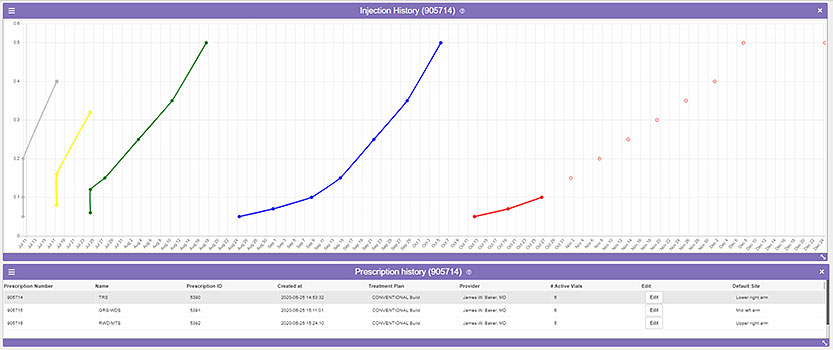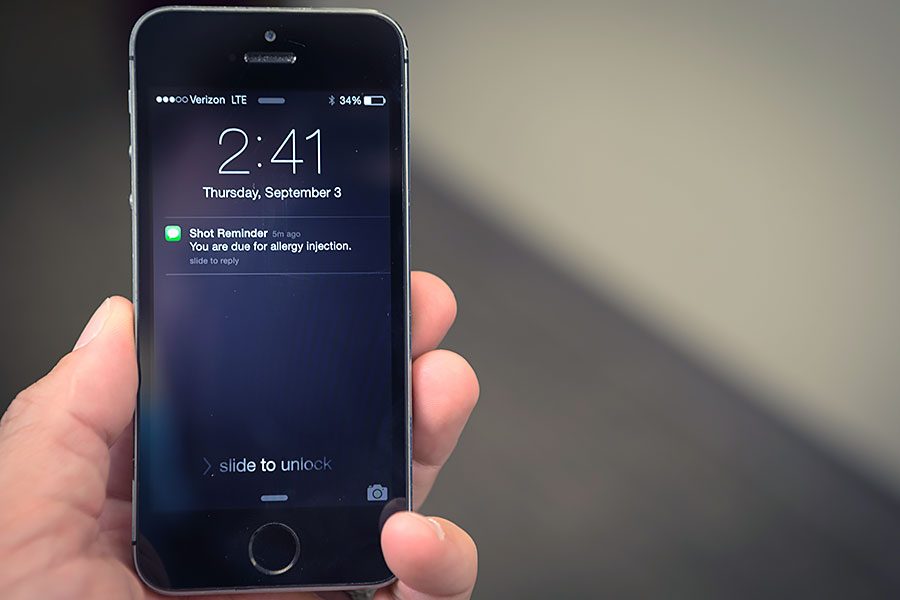Subcutaneous Immunotherapy (SCIT) involves regular injections over a set period of time, usually three to five years. The shots contain small amounts of allergens that a patient is sensitive to. Gradually, the doses are increased, with the goal of creating tolerance to the allergens, or desensitization.(1)
The time period is necessary to obtain the benefit of a carry-over after discontinuation and to reduce the risk of developing new allergen sensitizations and/or asthma. “Adherence represents the most critical issue for allergic immunotherapy as a treatment modality for allergic rhinitis.”(2)
A study published in the Annals of Allergy, Asthma, and Immunology, involved the review of electronic medical records of 8,790 patients with allergic rhinitis who were recommended for allergenic immunotherapy. Approximately 36 percent of the patients agreed to begin immunotherapy. Of those, 40 percent quit before three years, and the majority quit before five years of treatment.(3)
A number of studies have explored why patients end SCIT prematurely. Some frequently cited reasons are: frequency of injections, duration of treatment, commuting time for treatment, and perception of poor efficacy.(4)
Strategies for Improving Adherence
It has been proposed that technology, including the internet, twitter, electronic health records, and text messaging, can enhance patient health care in terms of disseminating information and reminding patients of appointments and schedules for medicine. Most studies show that text reminders increase the rate of appointment attendance.(5)
A study focusing on the efficacy of text messages for allergy patients specifically found that adherence to medication was improved in a group reminded with a text message compared with a group who were not reminded (60% versus 28%). Clinic attendance was also improved with a text reminder, 72% versus 40%.(6)
Xtract solutions software automatically generates text reminders and emails for immunotherapy patients. Patients are typically reminded via text message three days before their appointment.
Another key strategy for improving adherence is better education about what a full course of allergenic immunotherapy entails. One study showed that 39% of patients expected complete recovery of allergies and that four out of 10 patients did not realize they needed long-term treatment. This study concluded: “There is a grave lack of knowledge and numerous misconceptions among substantial numbers of patients receiving aeroallergen immunotherapy. More educational effort is needed to increase patients’ knowledge about immunotherapy before and during aeroallergen immunotherapy to improve their compliance and the success and safety of this therapeutic modality.”(2)
Immunotherapy patients on average have roughly 100 shot appointments over the course of their treatment. The shot nurse can use this graph in Xtract Solutions software to assist in educating patients of their progress. A patient can see milestone dates in the future, such as when they will reach the maintenance therapeutic dose, when appointments are less frequent. Understanding the therapy and timeline encourages adherence and continued compliance with the treatment plan.

(1) Mayo Clinic, Allergy Shots, https://www.mayoclinic.org/tests-procedures/allergy-shots/
(2) Senna, G. M.D., Caminati, M. M.D., Lockey, R. M.D., Current Treatment Options Allergy, Allergen Immunotherapy Adherence in the Real World, How Bad Is It and How Can It Be Improved, https://link.springer.com/
(3) Anolik, R. M.D., Schwartz, A. R.N., Annals of Allergy, Asthma, and Immunology, Patient Initiation and Persistence with Allergen Immunotherapy, https://www.annallergy.org/
(4) Musa, Fardous M.D., Al Ahmad, M. M.D., et. al., U.S. National Library of Medicine, National Institute of Health, https://www.ncbi.nlm.nih.gov/
(5) Schwebel, F., Larimer, M., Internet Interventions, U.S. National Library of Medicine, National Institute of Health, Using Text Message Reminders in Health Care Services: A Narrative Literature Review, https://pubmed.ncbi.nlm.nih.gov/
(6) Wang, K., Wang, C., et. al., International Archives of Allergy and Immunology, A Randomized Controlled Trial to Assess Adherence to Allergic Rhinitis Treatment Following a Daily Short Message Service (SMS) Via the Mobile Phone, https://pubmed.ncbi.nlm.nih.gov/




